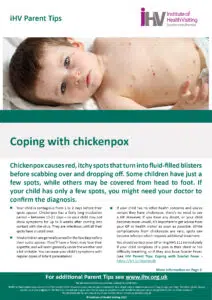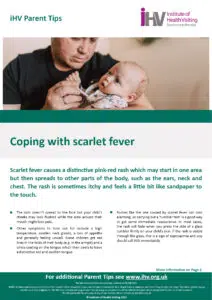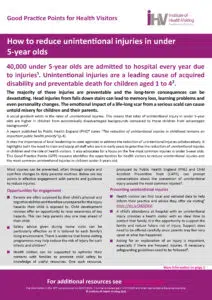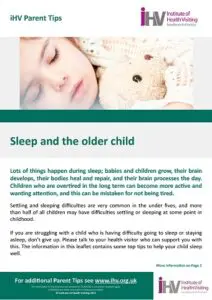We are delighted to share news of our Changing Conversations Stakeholder event which took place virtually on 25 February. The event was a great opportunity to showcase our brand new coproduced Changing Conversations Toolkit (with many new resources to support those working with children with autism and their parents) and Changing Conversations Ambassador training.
iHV was supported by the Burdett Trust for Nursing to develop and offer a programme of training for health visitors to be “Ambassadors for Changing Conversation” for children with autism and their families. The training has been co-produced by parents and professionals to support health visitors in their role with families.
The new Changing Conversations resources were presented to all those who were involved in the development of the resources and a wide variety of stakeholders including parents, people with lived experience, Department for Education, NHS England & NHS Improvement, Health Education England, various NHS Trusts, charities working in the sector, and universities. For new resources please see links below for new Parent Tips and Good Practice Points.
The stakeholder event provided a great opportunity to share the resources with such enthusiastic people who have a real passion to improve the lives and life outcomes of children with autism and their families. The next step is for us to work with these stakeholders to look at how we can expand these resources and the awareness session to enable more health visitors to access these, and to consider how we address suggestions for development. These included considerations of how the resources can be tailored to meet your local needs as well as wider audiences including the Early Years workforce.
For updates on the project, do ask your local Changing Conversations Ambassador or contact us at [email protected]
New Resources
Parent Tips
To support the Changing Conversations project, iHV has published a series of new Parent Tips for health visitors to share with parents and families:
All families in the UK with children aged 0-5 years have a health visitor. Health visitors lead the “Healthy Child Programme”. This is a national public health programme to improve the health of babies, children and their families to enable a happy, healthy childhood and provide the foundations of good health into adult life.
Speaking, understanding and communicating are important life skills. It may seem that these skills happen naturally. They don’t. Parents have a very important role to play in helping their child’s development.
It can sometimes be hard for parents/carers of children with autism to understand and support their child’s behaviour. This can be frustrating for both the parents/carers and the child. This parent tip offers some simple strategies to support parents/carers to communicate what they would like their child to do.
Good Practice Points
To support the Changing Conversations project, iHV has published a series of new Good Practice Points for health visitors on working with children with autism:
One of the key aims of the Healthy Child Programme (2009) is to support ‘school readiness’, which includes the early identification of children showing signs of developmental delay and those who would benefit from early intervention. Speech, language and communication (SLC) skills are a core part of this and the promotion and review of these skills should be a part of every health visitor contact.
Autism is a lifelong developmental disability. Autistic people see, hear and feel the world differently to other people.
The key to a successful start at school, for children with complex health needs / SEND, lies in partnership working during preparation, transition and follow up. The number of children with complex health needs / SEND is increasing year on year. 3.3% of all pupils in schools in England have an Education, Health and Care (EHC) plan, a rise from 3.1% in 2019. A further 12.1% of all pupils have SEN support, without an EHC plan, up from 11.9% in 2019.
This GPP aims to support understanding of the what’s behind behaviour so that timely advice and support can be offered to families, tailored to the needs of the child. Behaviour, even when it appears different, is always about meeting a need. Everything we do is driven by our needs, which are common to all adults and children. People and children with autism have some additional needs. By understanding underlying behaviours, we can support children to explore their potential and to have their needs met in a different way if their behaviour is harmful or challenging.
Please note that these GPPs are available to Changing Conversations Ambassadors, those they have trained and iHV members.
If you’re not a member, please join us to get access to all of our resources.
The iHV is a self-funding charity – we can only be successful in our mission to strengthen health visiting practice if the health visiting profession and its supporters join us on our journey. We rely on our membership to develop new resources for our members.
So do join us now!











